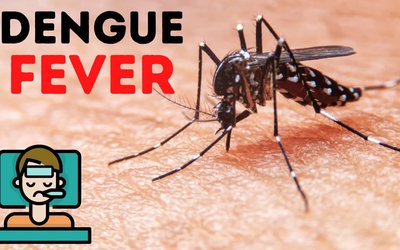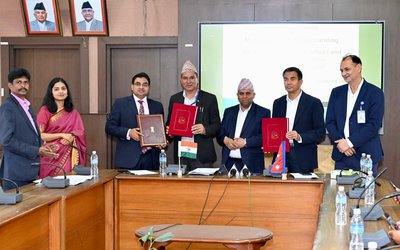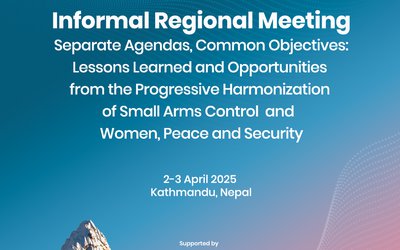
What is the scale of dental health problems amongthe Nepalese children?
Dental problems are getting alarmingly high among the urban children, particularly in Kathmandu, Pokhara, Biratnagar and Dharan. As parents and school teachers are unaware about the dental problems, even a small and preventable dental problem is causing a lot of damage to children’s health.
Why is it high in the urban areas?
Urban children are facing psychological stress, over parenting and change in food habits. I make frequent visits to different parts, but I find more problems in urban areas.
If the problem is really big, what would be the solution?
The solution lies in counseling and awareness. We need to do more counseling to parents and school teachers.
Urban parents can afford to bring their children to the clinic, but what will the poor children do?
Money will be no problem for the treatment of poor as there are a lot of people who are willing to support them. What is required is awareness. Nepalese are very philanthropic people, but there is the need to create the trust that their money will be utilized for a cause.
How about the situation in Pokhara and Biratnagar?
Even in Pokhara and Biratnagar, the problem is getting big. Parents bring their children from Pokhara to the clinic such as to clamp the teeth.
How do you distinguish pediatric dentist?
Pediatric dentistry also involves child psychology. Children need multiple treatments. They will need to give time. There are specialists based on their study. Pediatric dentistry is a specialized issue. I used to get a lot of referral cases related to children from Dr. Neil Pandey. I have to admit the fact that there are only a few professionals like him who refer the case. I do refer to other dentists if it is beyond my capability.
Are children easy to treat?
I have seen a number of children who often get scared to see me. Given their past experience of visiting dentists, they consider visiting a dentist is painful. Actually, it is not. Once you convince the children psychologically about the need to take care of their teeth, they are much easier to treat. If they are unconvinced, they are going to be difficult. Thus I am making my clinic child friendly with pictures of animals, cartoons and clowns at the wall of my clinic.
How did you specialize as a pediatric dentist?
It is my passion to work with children. I developed interest in the pediatric dentistry during my study in South India. When I was referred to treat a small child who did not have any teeth, I took the challenge. This episode changed me. I am helping children to help myself and I am not losing anything.
How do you see the level of awareness?
The level of awareness among the parents and teachers is low. I visited one of the Montessoris which claimed that it teaches how to use the brush to children. However, when I visited it, I found that even the teachers do not know how to use the brush. We are now conducting classes teaching teachers how to use brush. We need to teach teachers and parents to use brush to change the overall situation. We are charging Rs. 25 to Rs. 50 a month. There are certain techniques to use the brush.
How about the materialsand techniques of treatment for children and elderly?
The name of treatment may be same but the materials and techniques, the way you deliver the treatment, are different. Psychological touch is necessary to treat the children. When I came here four and a half years ago, I was totally shocked to know that adults and children were receiving the same treatment. The dentists use the same technique to treat all cases.
What do you see now?
There are pediatric dentists. I am lucky to have specialized from a good place, University Manipal in India, and got a good opportunity to practice. I now have six dentists. I give time only to the children. I taught in Kist Medical College for four years. I am treating children, mainly below ten years.
How expensive the treatment?
There is no doubt that dental treatment is very expensive. Even if we just charge the real cost, it is very high for even low and middle class families. Prevention is far cheaper.
Why not go for prevention then?
I don’t know why prevention is getting less value and treatment is getting higher. Teeth are not only for grinding good food but there are also many psychological benefits as well. This awareness is what we have been unable to generate in the society. After a few years of practice, now parents are gradually visiting us with their kids.
How do you view the problem in terms of urban and rural areas?
The urban area is getting worse than the rural parts of Nepal. In urban areas, overwhelming numbers of children have one or the other kind of dental problem. The problem is that parents do not realize till the problems really hurt their kids. Unlike diarrhea, fever and cold, the dental problems cannot be seen.
Why is the problem so bad in urban areas?
This is natural in the urban areas because the parents are busy and they do over parenting.That means they fulfill each and every demand of the children when they see them. However, in the rural areas children are very much attached to their parents and they eat natural foods with less sugar and chocolates.
What is the treatment cost of pediatric dental problem?
The minimum cost ranges from Rs.500 to 40,000.00. Crowning all the teeth of a child costs Rs.40000.00. Every parents love to bring their kids and spend money for the betterment of their wards. However, the awareness level is low.
What is the state of the dental problem among the children in terms of geography?
Across mountains, hills and the terai, the situation of dental problem among urban children is alarmingly high. Rural children may have other health problems but they are secure in terms of oral health. Of course, parents of children of Katmandu valley are educated and highly sensitive towards health care. However, this is not so with oral health. I have treated many children whose teeth were badly damaged due to psychological reasons. Psychology and dental problems are interrelated.
People say dental problem is a rich man's problem. What do you say?
This is not true. There are problems among both the rich and poor, but urban children have a lion's share of the problem. There is a reason behind this as the dental complication has also relations with parenting. The meeting time between parents and children is very short in urban areas as both the parents of urban children spend a lot of their time in work. They provide candy and chocolate to children as they want.
As you said, the problem is getting alarmingly high. How is the government responding?
I have personally made certain efforts to convince the government authorities, particularly officials of Ministry of Education. However, their response is frustrating. The current state of the problem will continue to be there even in the coming decades if the state continues to ignore the issue. Our small effort is not adequate.
What more do you suggest?
I ask all parents and school teachers, particularly those who are involved in Montessori education and primary education, to sincerely look at their children’s teeth and teach them how to properly brush. Visit pediatric dental clinic and provide proper treatment to children.
- IME GROUP: Expands Into Paper Industry
- Mar 24, 2025
- CPN UML: Instigated By India
- Mar 23, 2025
- ADB’S CHIEF ECONOMIST: Nepal Reduces Poverty
- Mar 11, 2025
- FM DR. DEUBA: A Successful Visit
- Mar 11, 2025
- MD GHISING: Target Of Personal Grudge
- Mar 09, 2025















